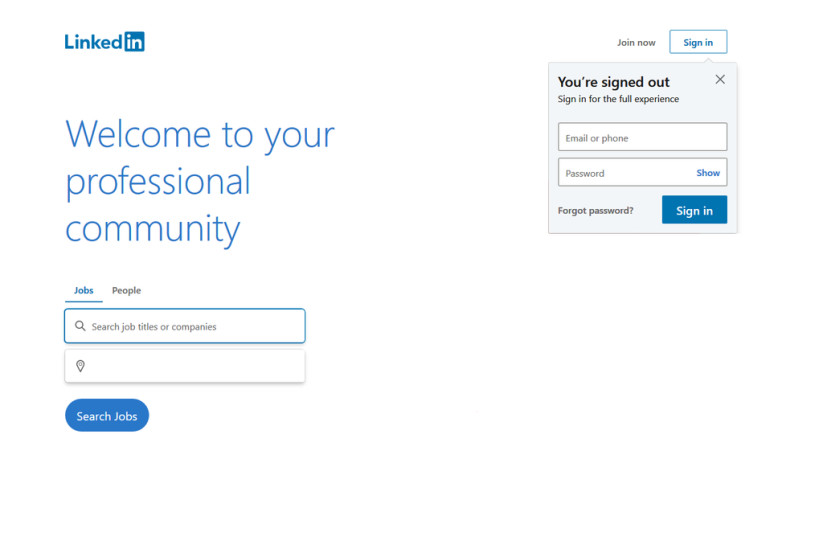Fighting Online Antisemitism (FOA), an organization that monitors online anti-Jewish prejudice, recently conducted a survey that revealed abundant antisemitic content on LinkedIn that was reported but not removed.
The survey used the International Holocaust Remembrance Alliance's (IHRA) definition of antisemitism to identify over 100 antisemitic posts.
LinkedIn, the business and employment social media website, has committed to opposing discriminatory content, as per its "professional community policies."
Their professional policies page prohibits user behavior that is harmful, misleading, and hateful.
For instance, they claim to forbid "content that attacks, denigrates, intimidates, dehumanizes, incites or threatens hatred, violence, prejudicial or discriminatory action against individuals or groups because of their actual or perceived race, ethnicity, national origin, caste, gender, gender identity, sexual orientation, religious affiliation, age, or disability status."

Still, of the over 100 "antisemitic" posts that the survey found, less than a third (31.7%) were removed.
Why were so few antisemitic posts on LinkedIn removed?
According to the FOA manager of monitoring, “The concerning issue with posting antisemitic content on LinkedIn is that the same people that spread hate content, also boast various academic and professional degrees and titles. That way they are attempting to make their hateful content more credible. All reported content was scanned and checked under a microscope according to the International Holocaust Remembrance Alliance’s definitions and terms. Like all other social networks, LinkedIn also claims to fight this phenomenon, but unfortunately, our survey shows a different reality, the system that is supposed to stop this phenomenon does not work the way it should. We are calling for LinkedIn to collaborate with civil associations and organizations in order to remove antisemitic content quickly and efficiently, all while improving the existing policy on anti-Israeli content considered as antisemitic.”
“The concerning issue with posting antisemitic content on LinkedIn is that the same people that spread hate content, also boast various academic and professional degrees and titles. That way they are attempting to make their hateful content more credible. All reported content was scanned and checked under a microscope according to the International Holocaust Remembrance Alliance’s definitions and terms. Like all other social networks, LinkedIn also claims to fight this phenomenon, but unfortunately, our survey shows a different reality, the system that is supposed to stop this phenomenon does not work the way it should. We are calling for LinkedIn to collaborate with civil associations and organizations in order to remove antisemitic content quickly and efficiently, all while improving the existing policy on anti-Israeli content considered as antisemitic.”
FOA manager of monitoring
The most frequent type of antisemitic post discovered by the FOA survey depicted Jews and Israelis as Nazis, although overt calls for violence against these groups on LinkedIn were less prevalent than on other social media platforms.
Nevertheless, the antisemitic rhetoric espoused by the posts found by the survey is thematically similar to much of the antisemitic content that FOA has found in its other reports.
For instance, the FOA Antisemitic Content Monitoring Report for 2020-2021 features posts such as one comparing the biblical chosenness of the Jewish people to the Nazi German attitude of racial superiority. Another post states, "the world stopped Nazism, the world stopped apartheid, the world must stop Zionism."
